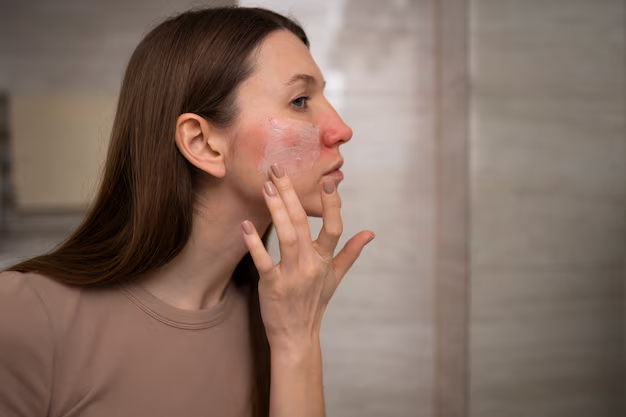
When it comes to makeup, sensitive and acne-prone skin requires extra care to avoid irritation or breakouts. Dr Soma Sarkar, a renowned dermatologist and Co-Founder of Skin Beyond Borders (SkinBB), shares her expert advice on how to choose and apply makeup without compromising skin health.
Here are five essential precautions to follow for flawless makeup without damaging sensitive or acne-prone skin:
For sensitive skin, proper cleansing is crucial. Dr Sarkar emphasises that "Sensitive skin is very prone to flare-ups, so cleansing your face properly is essential. Use a mild cleanser or chemical exfoliators rather than physical exfoliators, as the latter can be too harsh." This step helps remove impurities, reducing the risk of irritation from makeup products.

Dr. Sarkar advises, "Before applying makeup, always use a good primer. It forms a protective layer between your skin and the makeup, which is especially important for sensitive skin." A primer helps to smooth the skin's surface, ensuring that makeup goes on evenly without clogging pores or causing irritation. For acne-prone skin, it also minimises the risk of aggravating existing breakouts.

“For sensitive skin, less is more,” says Dr. Sarkar. "Choose makeup products that offer light coverage and have fewer pigments, as heavy foundations can be too thick and irritating." Opt for hypoallergenic and non-comedogenic makeup products, which are formulated to reduce the risk of allergic reactions and acne. For example, a light foundation or tinted moisturiser can provide coverage without suffocating your skin.
For acne-prone skin, the dermatologist recommends "using matte foundations rather than dewy formulas, as the latter may increase oil production and clog pores." Stick to lightweight products that allow your skin to breathe and avoid products that contain excessive preservatives or artificial pigments.
Don't Miss: Makeup In Winters: 7 Expert Tips For Soft And Natural Look
Dr Sarkar highlights the importance of keeping your makeup tools clean. She says, "Ensure your brushes and sponges are cleaned regularly, as they can harbour bacteria that cause breakouts, especially for acne-prone skin." Using dirty tools can transfer harmful bacteria and oils to your face, exacerbating acne.

Furthermore, she stresses that makeup should be stored in a cool, dry place and not in the bathroom, where humidity can affect the product’s integrity. "Make sure your makeup products are fresh and haven’t passed their expiry dates to avoid irritation," she adds.
Don't Miss: 3 Reasons Why You Should Remove Makeup Before Hitting The Bed, As Per Expert
After a long day, it's vital to remove makeup properly. Dr Sarkar advises, "Double cleanse your face to ensure all makeup is completely removed. Start with an oil-based cleanser to break down makeup, followed by a water-based cleanser to clear any remaining residue." This thorough cleansing routine prevents clogged pores and reduces the risk of acne.

Additionally, she encourages makeup-free days. "Allow your skin to breathe by going makeup-free whenever possible. This helps prevent further irritation and supports your skin's natural healing." Even if you're not dealing with acne, sensitive skin benefits from taking breaks from makeup to allow its natural barrier to recover.
For sensitive and acne-prone skin, makeup needs to be approached with care. By following these precautions, you can enjoy makeup without compromising your skin’s health.
Image Credits: Freepik
If you liked this story, then please share it. To read more such stories, stay connected to HerZindagi.
Also watch this video
Herzindagi video
Our aim is to provide accurate, safe and expert verified information through our articles and social media handles. The remedies, advice and tips mentioned here are for general information only. Please consult your expert before trying any kind of health, beauty, life hacks or astrology related tips. For any feedback or complaint, contact us at [email protected].